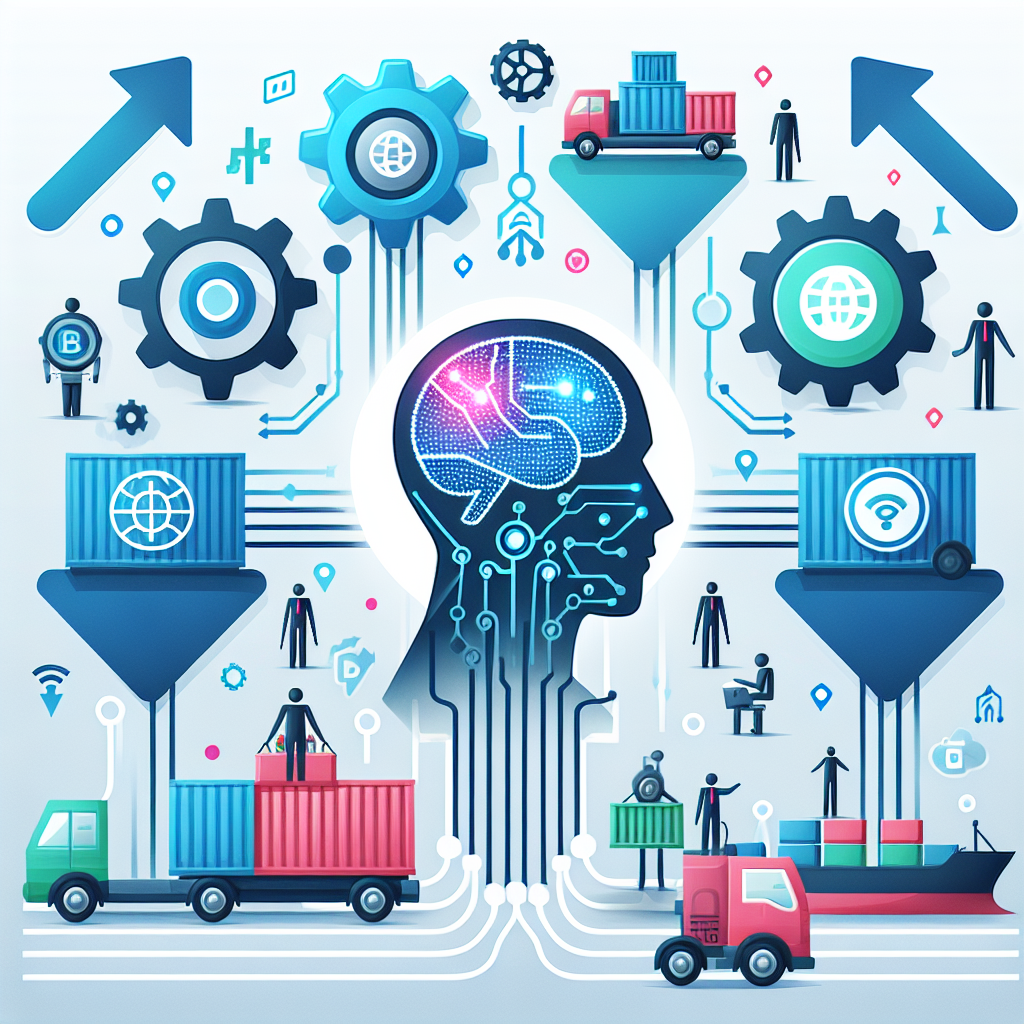In today’s fast-paced and competitive business environment, supply chain optimization and cost reduction are critical factors for success. Companies are constantly looking for ways to improve their supply chain processes to increase efficiency, reduce costs, and gain a competitive edge in the market. One technology that is playing a significant role in achieving these goals is artificial intelligence (AI).
AI is revolutionizing the way companies manage their supply chains by enabling them to make smarter decisions, automate processes, and optimize operations. From demand forecasting and inventory management to route optimization and procurement, AI is being used in various areas of the supply chain to drive efficiency and reduce costs.
One of the key benefits of AI in supply chain optimization is its ability to analyze large volumes of data quickly and accurately. By leveraging machine learning algorithms, AI systems can process vast amounts of data from multiple sources, such as sales data, production data, weather patterns, and market trends, to provide real-time insights and recommendations to decision-makers.
For example, AI-powered demand forecasting models can analyze historical sales data, seasonality trends, and external factors to predict future demand with greater accuracy than traditional methods. This enables companies to optimize their inventory levels, reduce stockouts, and minimize excess inventory, leading to cost savings and improved customer satisfaction.
AI is also being used to optimize transportation and logistics operations. By analyzing factors such as traffic patterns, delivery schedules, and fuel costs, AI algorithms can generate optimal routes for delivery trucks, reduce transportation times, and minimize fuel consumption. This not only lowers operating costs but also improves customer service by ensuring on-time deliveries.
Furthermore, AI can help companies streamline procurement processes by automating supplier selection, negotiation, and contract management. By analyzing supplier performance data, market trends, and risk factors, AI systems can recommend the best suppliers for specific products or services, negotiate favorable terms, and identify potential risks before they escalate.
Overall, the role of AI in supply chain optimization and cost reduction is becoming increasingly important as companies strive to stay competitive in a rapidly changing marketplace. By leveraging AI technologies, companies can gain a deeper understanding of their supply chain operations, identify inefficiencies, and implement data-driven solutions to drive cost savings and improve overall performance.
FAQs:
1. How can AI help in inventory management?
AI can help in inventory management by analyzing historical sales data, demand forecasts, and other factors to optimize inventory levels, reduce stockouts, and minimize excess inventory. AI-powered systems can provide real-time insights and recommendations to help companies make smarter decisions about inventory replenishment and allocation.
2. What are the benefits of using AI in transportation and logistics?
AI can optimize transportation and logistics operations by generating optimal routes for delivery trucks, reducing transportation times, and minimizing fuel consumption. This leads to cost savings, improved efficiency, and better customer service by ensuring on-time deliveries.
3. How can AI improve procurement processes?
AI can improve procurement processes by automating supplier selection, negotiation, and contract management. By analyzing supplier performance data, market trends, and risk factors, AI systems can recommend the best suppliers for specific products or services, negotiate favorable terms, and identify potential risks before they escalate.
4. What are the challenges of implementing AI in supply chain optimization?
Some challenges of implementing AI in supply chain optimization include data quality issues, integration with existing systems, and resistance to change from employees. Companies need to invest in data quality management, IT infrastructure upgrades, and employee training to ensure a successful AI implementation.
5. What are some examples of companies successfully using AI in supply chain optimization?
Companies such as Amazon, Walmart, and UPS are successfully using AI in supply chain optimization to improve inventory management, transportation efficiency, and procurement processes. These companies have seen significant cost savings, operational improvements, and competitive advantages by leveraging AI technologies in their supply chain operations.

